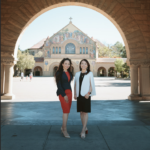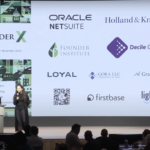I’ve found an important thread, and am asking for your help to find more. There’s a fascinating group of scientists and founders who have been working on ways to amplify human abilities, especially in the areas that support cooperation, collaboration, and connection. They use many names for it — collective intelligence, democracy tech, plurality, bio synchrony — but it all gets at the same thing: Expanding Human Intelligence Some examples of projects already working in this area: Plurality Institute, Unanoimous AI, CrowdSmart, ACM, Goodly Labs) Why does it matter? Where AI outperforms a single human, it does not outperform a human swarm. A human swarm performs at the SAME level as an AI. A human swarm OUTPERFORMS AI in any area where a past data set does not exist. AI can effectively predict the past, but not the future when compared to a human swarm. What allows humans to swarm more effectively? My thesis – mental, social, and emotional health. Basically, what we’ve all been working on for the last decade is what prepares humans to swarm more effectively. I want to find the people who are working on the science and technologies that support collective Human Super Intelligence. Your work directly links to their work by improving the underlying mental, social and emotional health of the swarm in a scalable way. My belief – we must get to collective human superintelligence before machine advanced superintelligence. By connecting this new technology to ours, a planet scale Collective Human Super Intelligence is possible. I am on the search for a sponsor to fund a map of the entire ecosystem. How can you help? If you read about, hear about, know about someone working in this area. Please reply and introduce me. If you want to fund that mapping. Let me know. If you’re curious, help search and send links. Or tag me on Linkedin, when you find something interesting.

Dear Friends, I’ve dreamt of being able to invest in transformative tech companies since our Transformative Technology Conference in 2015. So…I am excited to share a significant milestone!!!! I’m thrilled to announce the official closing of Niremia Collective Fund I at $22.5 million! This pioneering fund is focused on investing in startups transforming mental health and wellbeing through technology. My co-founder Naoko Okumoto and I started Niremia to empower humans to build a better world by reaching greater possibilities in human wellbeing. We believe the global crises in mental health, aging, and more can be radically improved through innovation. Backed by visionary corporate and institutional investors from Japan and the US, Niremia Fund I has already invested in 12 leading startups like VR wellness platform TRIPP and mental health gaming company DeepWell. As veterans in consumer tech and gaming, Naoko and I take a bold view on human potential. We’re excited to support founders turning that possibility into reality. This fund matters because global wellbeing is a $8.5 trillion market by 2027. It matters because we urgently need new solutions. And it matters because we believe technology can empower people to thrive. If you’d like to learn more about Niremia Collective and our thesis in the era of AI and human intelligence, get in touch here. Much love, Nichol PRESS RELEASE

I believe that a founder’s mental, emotional, and social health is key to their success. Watch this talk to see what some investors don’t want you to know. Key Points: 💡 Mental health issues and stress affect founders’ abilities to lead. 💡 Physical and mental health is important for your success. 💡 Real fast-acting tips on improving mind-body health. 💡 Quick techniques for stress reduction and better well-being. 💡 Love is scalable when you clear up your MDI’s* *MDI’s – technical term for Mommy Daddy issues. Love, Nichol

After a year of scary AI headlines, I’m excited to share an inspiring application. Imagine understanding and communicating with whales, bees, and farm animals. That’s what The Earth Species Project aims to achieve. They’re using AI and machine learning to decode the communication of different species. This work, rooted in bioacoustics and behavioral ecology, reveals complex communication systems. The project’s machine learning models advance animal behavior research and conservation efforts, with global public access emphasizing understanding and protection of species. This AI venture could revolutionize our knowledge of non-human communication. Understanding animals might foster more humane interactions amongst ourselves. Lastly, I’ve been quiet due to the loss of my auntie, who was like a mother to me. You can read about her here. Her passing has reminded me that life is about the journey, not just the destination. We often have less time than planned. It’s about how the journey feels, and the transformation we undergo towards our goals. Goals are progress markers, not the point itself. The real question is whether our goals challenge us to grow, meet new people, and learn new things, or if they’re merely passing time without impacting us. Love, Nichol

Recently, I had the pleasure of joining Barry O’Reilly on the Unlearn Podcast. In our conversation, we explored the landscapes of unleashing potential, and how we can harness the power within ourselves. Some of the topics we discussed: Unlearning Limiting Beliefs that Restrict Human Potential: Neuroscience research reveals the brain’s uncanny abilities that operate below our conscious awareness. State of Flow: When people are in rapport, their nervous systems synchronize in measurable ways. The Importance of Healthy Conflict: Conflict seeking and conflict avoiding are not the same thing. You can be someone who doesn’t avoid conflict, who also doesn’t seek it. Games as Collective Storytelling: Games allow new modes of collective mythmaking. Expanding Human Potential with Technology: Each person must first clearly define an inspiring vision for who they want to become, then take committed action to become that best version of themselves. You can listen to our conversation here.






